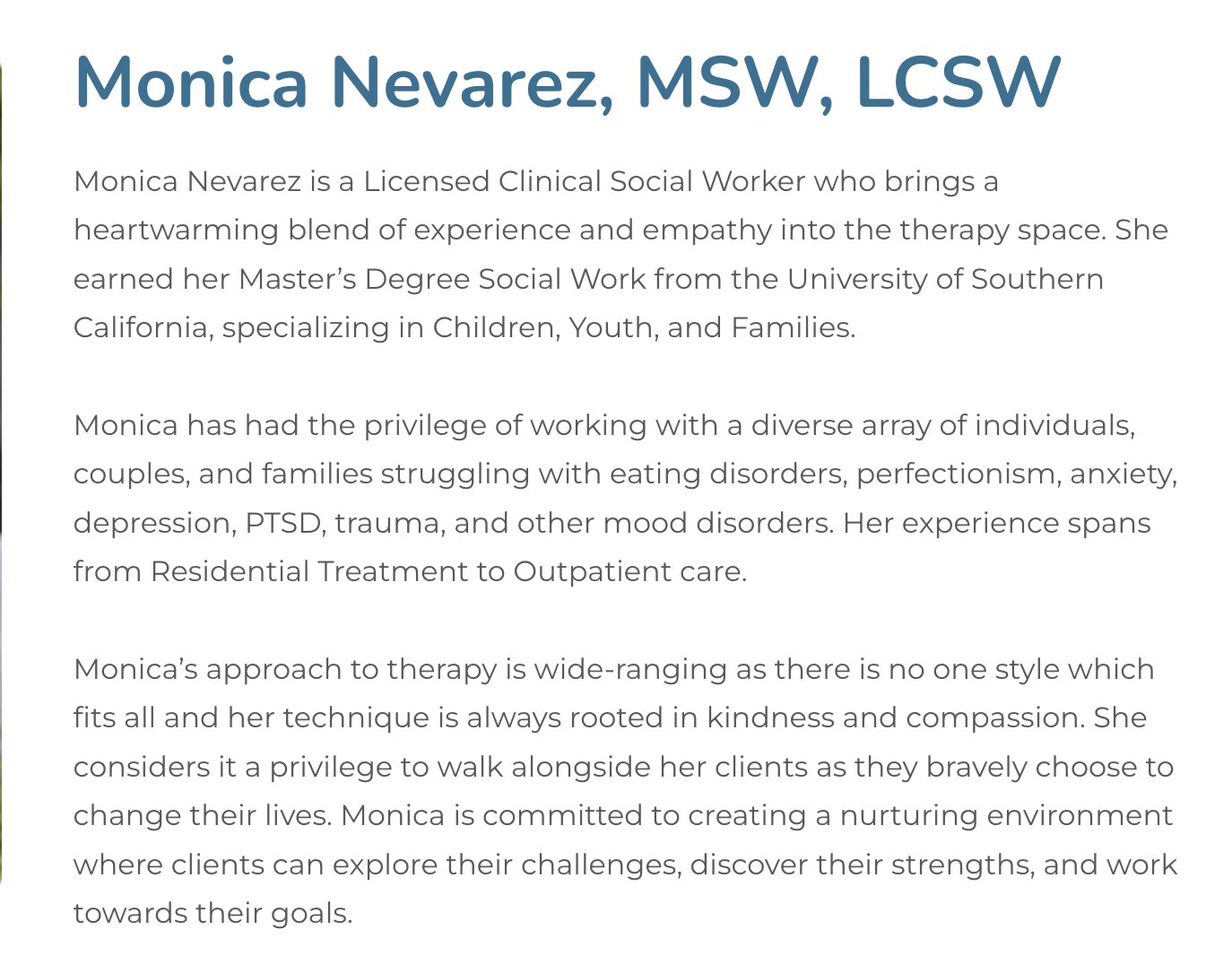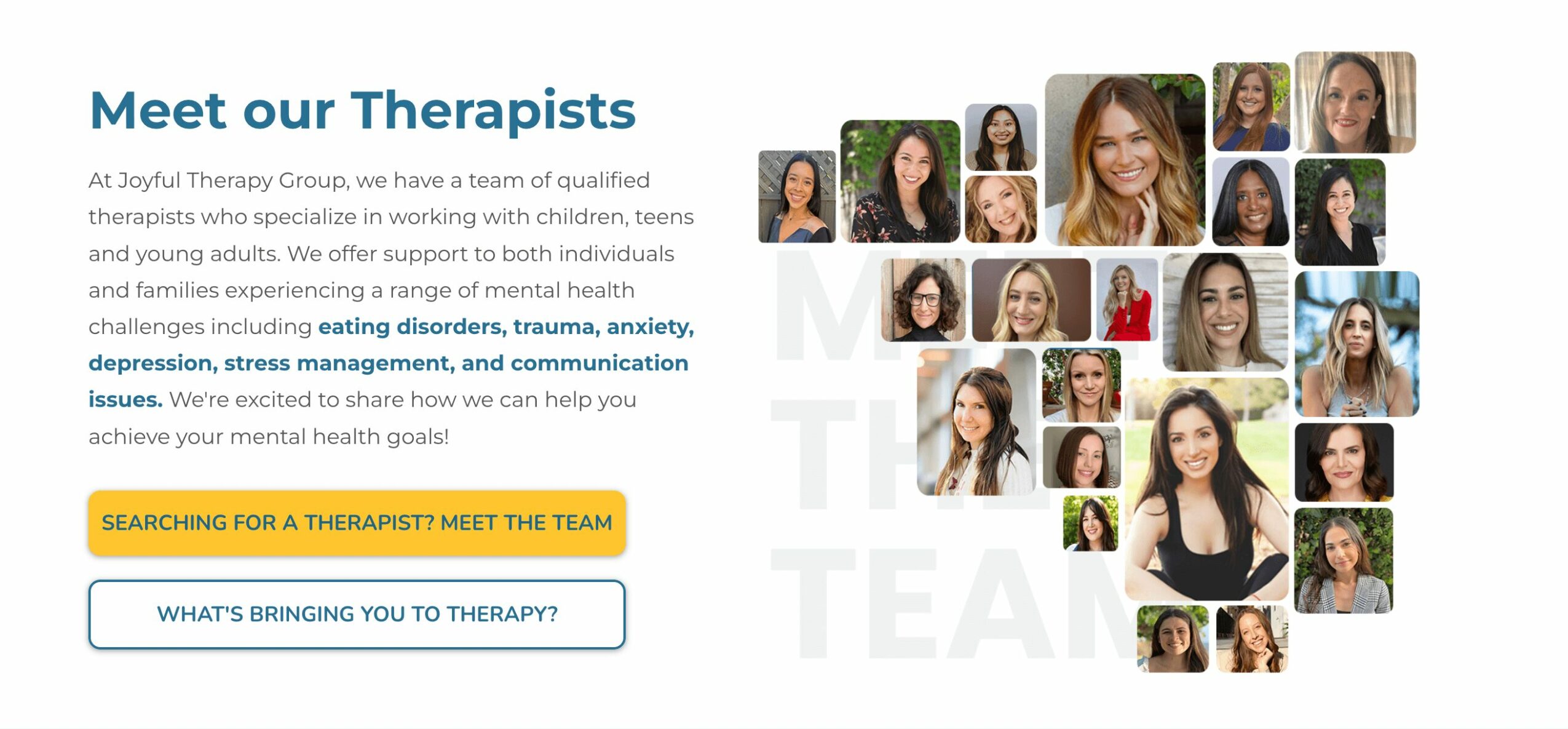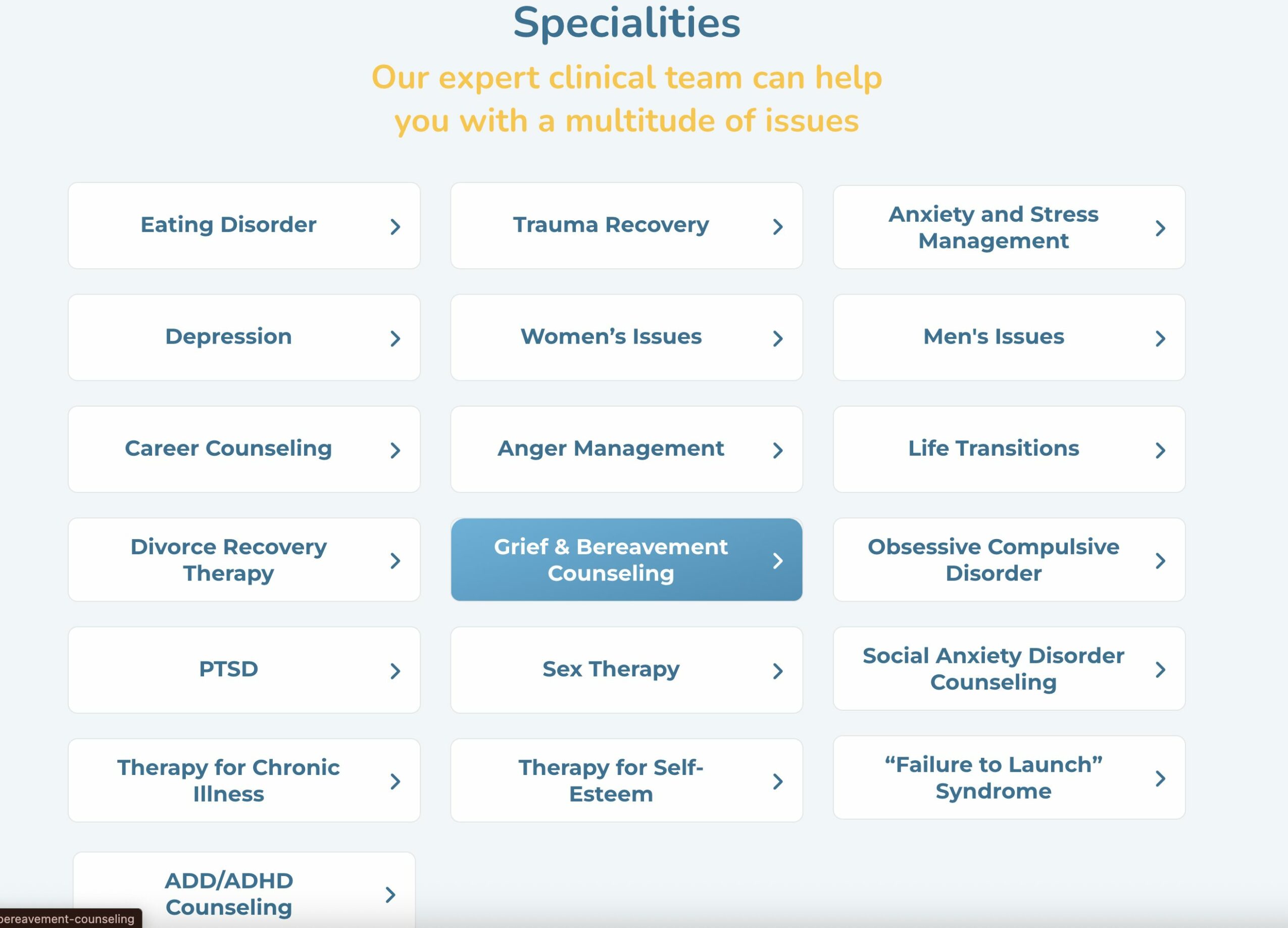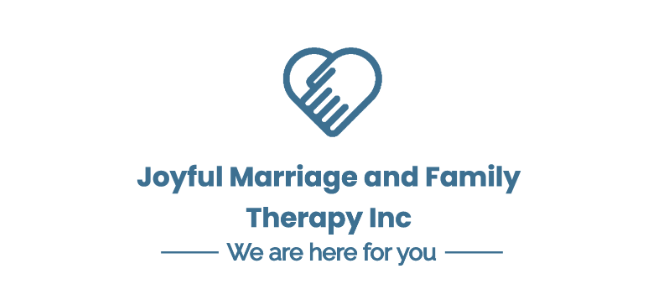

Today we’d like to introduce you to Monica Nevarez.
Hi Monica, can you start by introducing yourself? We’d love to learn more about how you got to where you are today?
I was 21 when I started therapy—not totally sure what I needed, but knowing something had to change. It didn’t happen overnight, but after a couple of months, something started to click. I was learning tools I never knew existed—things that didn’t make life easy, but made it doable. And for the first time in a long time, I felt like I had a way forward. That therapist changed my life. I remember thinking, “I want to help people get their life back too.”
Soon after, I applied to USC’s MSW program and committed to becoming a therapist. I began my career in community mental health, working with kids, families, and even court-mandated clients. Eventually, I found my passion in eating disorder treatment. I’ve worked across higher levels of care—PHP, IOP, and residential—and held roles from primary therapist to interim clinical director.
Today, I’m back to what I love most: one-on-one client work. At Joyful Therapy Group, I support people stepping down from intensive treatment, as well as those coming straight to outpatient and discovering what they need along the way. It’s a privilege to walk beside people as they reclaim their lives—because I know how transformative that journey can be.
Alright, so let’s dig a little deeper into the story – has it been an easy path overall and if not, what were the challenges you’ve had to overcome?
Not exactly—and that’s part of what’s made it so meaningful.
One of the hardest lessons early on was learning to truly meet clients where they’re at. Everyone’s path is so different, and if you don’t start there, it doesn’t matter how skilled or knowledgeable you are. The connection just won’t land. That’s a tough skill to build, and even once you do, it takes humility to remember that what worked for one person won’t necessarily work for the next. I try to start fresh with every client and slow down when I feel myself rushing ahead. That reset always brings me back to what matters.
Stepping into leadership roles also brought its own challenges. I was so focused on direct client work that I didn’t always see the value in the administrative and team-building skills I was learning. But in hindsight, they’ve shaped me into a more grounded and flexible clinician.
I’ve struggled at times with self-doubt—wondering what I bring to the room, especially among brilliant colleagues. And I’ve had to accept that I won’t be the right fit for everyone. That part can be tough, but it’s also freeing. Just like anything else, people have preferences, and I always hope clients find what they truly need—whether that’s with me or someone else. Being even a small part of that journey is something I’ll never take for granted.
Alright, so let’s switch gears a bit and talk business. What should we know about your work?
I’m an outpatient therapist who specializes in eating disorders. At our practice, we focus on eating disorder care as a whole—and it’s incredibly meaningful work. There are so many types of therapists out there, all equally important depending on the needs of the client. But one thing that touches every life is food. We all need it to survive, and yet our relationship with it can become strained or fractured in so many ways. It’s something we interact with daily, and like any relationship—whether with a person or a system—it can deeply shape the way we feel, function, and move through the world.
I’m most proud of helping my clients understand that they don’t have to stay stuck. It’s powerful to witness the moment something shifts—the way someone lights up when they’ve made a change that felt impossible before. Our sessions may only be 50 minutes a week, but what clients do outside of those sessions—challenging negative core beliefs, practicing new skills, growing their awareness—that’s where the transformation really happens.
What sets me and our team apart is the grounded, compassionate approach we bring to this work. Eating disorder recovery is layered and often slow, and I’m fortunate to work alongside a group of deeply caring clinicians who know how to stay steady and patient in that process. That steadiness creates space for trust, and ultimately, for healing.
What matters most to you? Why?
What matters most to me is helping people feel seen, supported, and capable of change. So many of us walk through life feeling like we have to carry everything alone, or that we’re stuck in patterns we didn’t choose but don’t know how to escape. To sit with someone in those moments—to remind them that they’re not broken, that their story matters, and that change is possible—that’s everything to me.
Therapy isn’t about fixing someone. It’s about walking with them while they learn to show up for themselves in new ways. What matters most is creating that kind of space—where clients can feel safe enough to be honest, challenged enough to grow, and supported enough to keep going even when it’s hard.
Ultimately, it’s the human connection that matters most. The relationship between therapist and client can be such a powerful part of healing. Being part of that process, even in small ways, is something I hold with deep respect and gratitude.
Contact Info:
- Website: https://joyfultherapygroup.com/monica-nevarez-msw-lcsw
- Instagram: Monica_Nevarez_LCSW
- LinkedIn: https://www.linkedin.com/in/monica-nevarez-msw-lcsw-54bb06169/



















